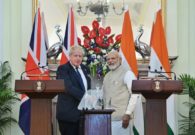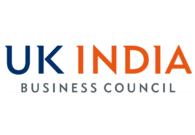What PM Modi’s ‘vocal for local’ narrative means for UK industry
The last week has seen a raft of significant announcements from the Government of India as it seeks to boost the economy in response to COVID-19.
On 12th May, Prime Minister Modi kicked-off the series by urging his people to go ‘vocal for local’ and support indigenous business by buying Indian products and services. A day later we saw the narrative actioned as, Home Minister, Amit Shah, announced that all Central Armed Police Force canteens will only sell indigenous products. And Finance Minister, Nirmala Sitharaman, made a series of announcements, including reforms designed to attract investment into India.
Thankfully, Modi’s Bharatiya Janata Party later confirmed that local does not only mean products made by Indian companies, but also those manufactured in India by multinational companies. It was also reassuring to see the expansion of FDI in India’s Defence Sector from 49 to 74 percent and signalling that the Government will launch a significant disinvestment programme.
There is sensible rationality in Modi’s aims. Global supply chains have been severely disrupted by the global shutdown and the forced lockdowns imposed by the majority of Governments around the world have highlighted the need for countries to have a certain degree of self-reliance.
Nonetheless, bilateral and multilateral collaboration have also been shown to have become increasingly pertinent, and, despite the inward-looking nature of many Governments at this moment in time, this is a global virus and, accordingly, one that needs global cooperation.
India has already shown impressive capacity to manufacture PPE and medicines in the face of COVID-19, and the PM is right to develop capacity further to stay ahead of the game.
The Prime Minister has determined five pillars for achieving self-reliance: 1) quantum jump in the economy, not incremental growth; 2) investments in infrastructure; 3) technology-driven services; 4) demographic dividend; and 5) reforming the supply chain.
These inward-looking pillars should help to attract much needed further investment to support indigenous growth. If India is to develop into the $5 trillion economy and geopolitical superpower it aims to become, international collaboration, trade and investment will be essential. In particular, trade in goods and services needs to continue to flow, and any protectionism could be counterproductive.
India has made impressive progress to open its economy to international activity under Modi. The country has jumped from 142nd in the World Bank’s ease of doing business rankings in 2014 to 63rd in 2019. The corporate tax rate cut was another welcome move to international business.
Additionally, a key feature of Modi’s time in office has been the ‘Make in India’ programme, aimed at asserting India as the global manufacturing hub. This announcement is thus the latest development in the Make in India story.
It will now be important for UK companies to demonstrate their value to this story. India has much to gain from the UK’s technological capabilities, research and development expertise, higher education sector, and more.
We, at UKIBC, support India’s Make in India campaign and believe it is necessary for India’s development prospects. At the same time, UK companies have been and remain invaluable to India’s growth story, as part 2 of this blog series will demonstrate next week.

 By Kealan Finnegan
By Kealan Finnegan 




